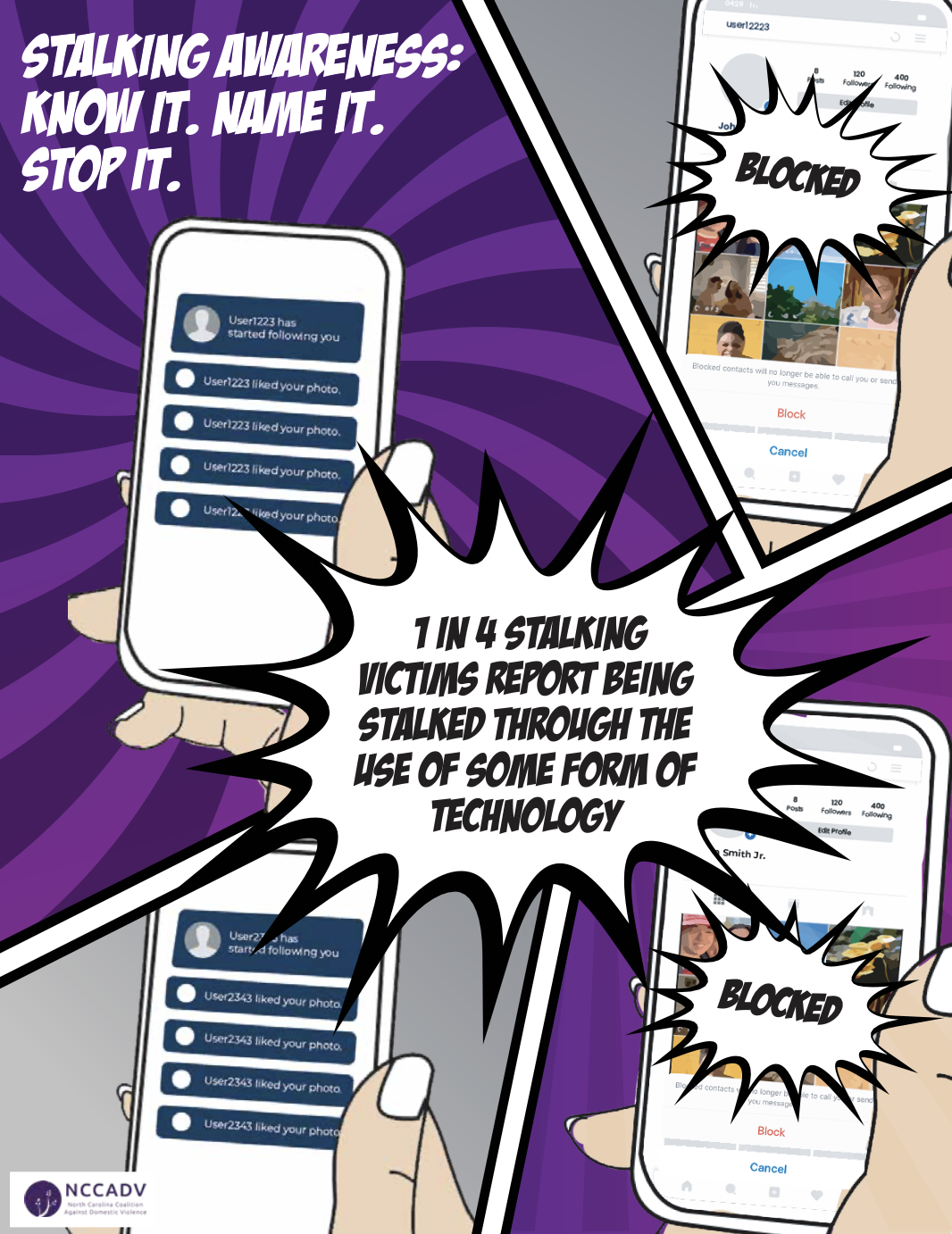Prevention Education Resources
For all toolkits, guides and suggested television and movie shows for prevention programming, please check out our Social Media and Pop Culture Page
NCCADV Specific Campus Resources
The DV and TBI Quick Guide, created by Ashley Leonard in Summer 2025, sheds light on the often-overlooked connection between domestic violence and traumatic brain injury. It explains how survivors of abuse, especially those who’ve experienced choking or blows to the head, may suffer mild or persistent TBIs that impact memory, mood, balance, and overall brain function.
The Navigating Domestic Violence in Media Quick Guide
The Navigating Domestic Violence in Media Quick Guide examines how media portrayals of abuse can shape public perception and impact survivors. The guide explains how sensationalized or judgmental coverage can retraumatize survivors and reinforce stigma, while also offering strategies for trauma-informed reporting. By encouraging responsible storytelling, centering survivor voices, and protecting anonymity, it calls on media professionals to move beyond sensationalism and toward empathy, accuracy, and advocacy for those affected by domestic violence.
The Quick Guide to Addressing Suicide During Survivor Calls
The Quick Guide to Addressing Suicide During Survivor Calls offers, trauma-informed guidance for responding to survivors who express suicidal thoughts during phone interactions. Backed by statistics showing that survivors of intimate partner violence are significantly more likely to experience suicidal ideation, this resource encourages thoughtful, nonjudgmental communication that prioritizes survivor safety, dignity, and emotional well-being.
The Title IX Partnership Guidance outlines how colleges and universities can build strong, trauma-informed partnerships between Title IX offices, Human Resources, Conduct departments, and Victim Service Providers (VSPs) to better support survivors of sexual and relationship violence. The guide explains how VSPs help survivors navigate options, safety planning, and supportive measures while ensuring trust and empowerment. By maintaining confidentiality, and integrating survivor-centered practices into institutional policy, campuses can create safer, more responsive environments.
Best Practices for Effective Prevention Programming in Higher Education
This guide from the North Carolina Coalition Against Domestic Violence offers a comprehensive roadmap for designing effective intimate partner violence prevention programs in higher education. It introduces key frameworks to help campuses strategically plan and evaluate their efforts. With practical insights on asset mapping, SMART goal setting, student engagement, peer education structures, and cross-campus partnerships, the manual empowers institutions to build sustainable, culturally relevant, and impactful programming tailored to their unique communities.
Best Practices Guide for Trauma Informed IPV Prevention and Response Offices
This trauma-informed best practices guide from the North Carolina Coalition Against Domestic Violence and the Chrysalis Network equips campus IPV prevention and response offices with actionable strategies to support survivors. It emphasizes the critical importance of 24/7 confidential advocacy, thoughtful office location planning, and the creation of multidisciplinary IPV Threat Assessment Teams. Grounded in research and policy, the guide offers practical tools for improving survivor safety, institutional accountability, and cross-campus collaboration, ensuring services are accessible, culturally competent, and rooted in healing-centered care.
Trauma Informed Programming Guide for Prevention and Awareness Events
This guide provides practical strategies for developing and delivering programs that center participant safety, empowerment, and trust. It outlines core trauma-informed principles, such as choice, collaboration, and cultural responsiveness, and offers tools for assessing current practices, creating supportive environments, and preventing re-traumatization. Designed for educators, facilitators, and program leaders, the guide helps ensure that all participants can engage meaningfully and feel respected throughout the programming process.
Resources for developing content/programming for Campuses
CDC Risk and Protective Factors for IPV
CDC’s Connecting the Dots: Links among multiple forms of violence
North Carolina State Statue on Domestic Violence
Online Dating Risks and Strategies
Virtual Trainings Available to You!
August Compliance Call: Confidentiality Refresher
Specific Tools for Students on Campus
Challenging domestic violence-related stereotypes
Condensed protocol and procedure sheets, referred to as “one pagers“
Understanding the intersection of substance use and intimate partner violence
Understanding intimate partner violence “norms” around the world
Debunking myths about intimate partner violence
Best practice for helping a friend or roommate in an abusive relationship
Professional Development and Conference Opportunities Nationwide
#MeTooLGBTQ San Diego
AAC&U Annual Meeting
AASECT Annual Conference
APHA Annual Meeting
Asian Pacific Americans in Higher Education (APAHE)
ATIXA Winter Symposium
Campus Prevention Network Summit
Coalition to End Sexual Exploitation Global Summit
Conference for Crimes Against Women
Creating Change
Critical Race Theory Summer School (African American Policy Forum)
EVAWI Conference, Anaheim Marriott, Anaheim, CA
Healing Justice Summit
IVAT (Institute on Violence, Abuse and Trauma) Summit
MASOC Campus Sexual Misconduct: Preventing and Responding to Perpetration
NASEM Action Collaborative Public Summit
NASPA Annual Conference
NASPA Strategies
NCCI - Network for Change & Continuous Innovation
NNEDV (National Network to End Domestic Violence) Annual Technology Summit
NOW Conference (National Org of Women)
NSAC - National Sexual Assault Conference - Anaheim, California
National Conference on Health and Domestic Violence
National Educators Association Conference on Racial and Social Justice
National Educators Association Higher Ed Conference
National Sex Ed Conference
National Sexual Health Conference
Othering & Belonging
Puzzles / Solving the Campus Sexual Assault and Dating Violence Puzzle National Conference - Virtual
SPECTRUM Conference: Preventing and Responding to Violence Against LGBTQI+ Students
Sexology Summit for Pleasure Professionals
Stanford Clayman Institute
The Partnership (CA Partnership to End DV) Conference
Thinking Gender: UCLA Center for the Study of Women
UCSC (SVSH) Symposium: Bridging Research, Practice, & Policy
University of Michigan Conference on Ending Sexual Harassment and Gender Based Violence
ValorUS (formerly CALCASA) CA Statewide Conference
Voices in Action - NCADV's National Conference on Domestic Violence
Woodhull's Sexual Freedom Summit
The posters below are available for download and use on your campus - developed by the Campus Program at NCCADV.


















